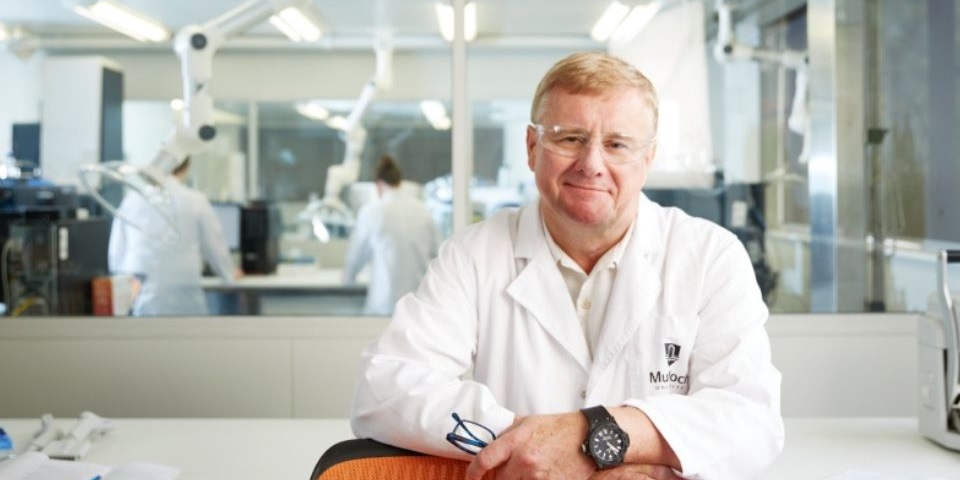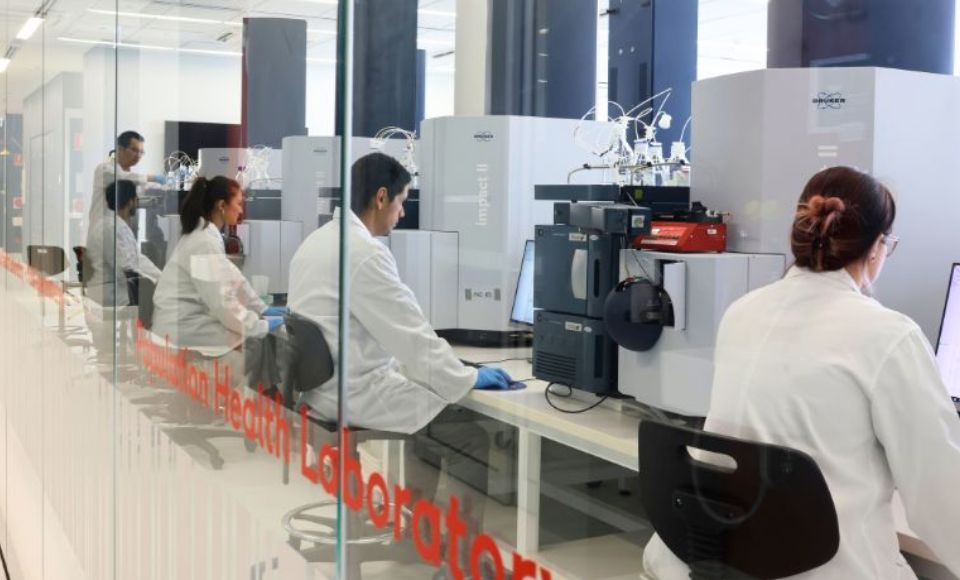Return to Our Story page
News
Dr Jeremy Nicholson and the ANPC, at the forefront of pandemic action

It’s 2020, and the world has just been introduced to COVID-19. There is widespread fear and uncertainty, and researchers around the world are searching for answers.
Enter Dr Jeremy Nicholson and Murdoch University’s Australian National Phenome Centre (ANPC) team.
Dr Nicholson, a world-renowned phenomics pioneer and director of ANPC, along with his team, joined forces with the South Metropolitan Health Service and broader WA healthcare community to launch a major research and diagnostics project.
2020: Springing into action
The diagnostics project involved analysing the molecular, physical and biochemical characteristics of blood and urine, in order to predict the variation and severity of COVID-19 in patients and identify the most effective therapeutic interventions for each case.
While the disease was initially assumed to impact certain demographics more than others, it soon became clear to experts that COVID-19 causes adverse reactions across all ages and levels of health.
Dr Nicholson noted that severe reactions and debilitating side effects were frequently occurring in younger demographics with no underlying health conditions.
The unpredictability of COVID-19 escalated the need for focussed research efforts, particularly prior to vaccine development and rollout.
“We believe this is just the beginning of a journey of discovery. We need to be on to guide us out of this disease,” Dr Nicholson said in August of 2020, during the height of the pandemic.
“A vaccine may save those in the future but much needs to be done to help those who have already been infected.”
ANPC quickly assigned 20 people in the centre to research COVID-19 – using data and samples from local patients, they sought to predict variation in the severity of the disease for each individual.
Dr Nicholson said this information was crucial to predicting who would need intensive care, thus optimising increasingly strained hospital resources.
2021-2022: Prevention, treatment and recovery in focus
In 2021, ANPC honed in on Long Covid, a debilitating condition which can leave sufferers of COVID-19 with medical conditions that linger long after initially contracting the virus.
The centre undertook follow-up studies assessing recovery and discovered a concerning trend in the results which required immediate action.
“What we discovered is a majority of non-hospitalised COVID-19 patients are not back to normal health or normal biochemistry three months on, with one or more symptoms persisting in 57% of those patients up to six months following the acute phase,” Dr Nicholson said.
This research prompted the launch of a new NMR-based tool for phenomics research by ANPC and Bruker Corporation, which prioritised addressing long-term COVID-19 symptoms.
The findings laid the foundation for the PhenoRisk PACS test, a rapid 20-minute blood test, to distinguish individuals with long-COVID from those who are healthy or fully recovered.

2023: predictive model for recovery
In 2023, a partnership between ANPC and the University of Cambridge, in collaboration with the Cambridge Institute of Therapeutic Immunology and Infectious Disease-National Institute of Health Research, saw the development of a predictive model to identify an individual’s chances of COVID-19 recovery.
This required a detailed history of biology and biochemistry of those infected to reveal exactly how bodies responded to the disease.
This framework was made available for research use while ANPC worked on refining it for clinical deployment.
2024: moving into the future
This year, ANCP’s Professor Julien Wist and Professor Nicholson led a team of international scientists in research which uncovered a hidden part of the human immune system that creates anti-viral agents.
Analysing blood and urine samples from COVID-19 patients, they discovered a largely unknown piece of a natural immunity system which acts as an anti-viral agent.
The discovery paved the way for scientists to begin developing new tests for general active viral infection, and new ways to create anti-viral drugs that extend beyond COVID-19.
ANPC continues to work alongside partner organisations to predict impacts and improve outcomes in COVID-19 and long covid sufferers.
